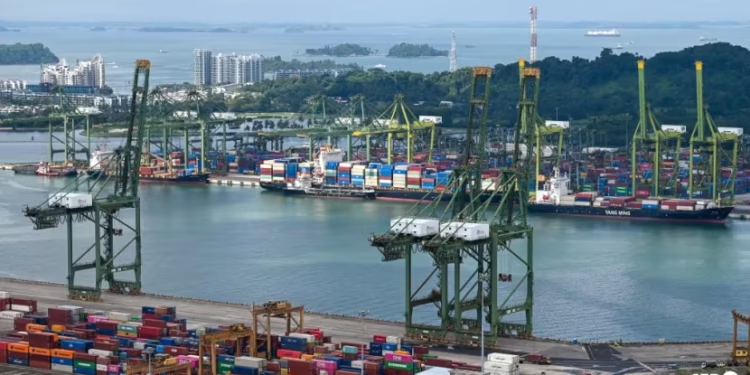Singapore: Although not specifically targeted by the most recent US tariffs announced over the weekend, Singapore’s open, trade-dependent economy may experience slower growth and a decline in business optimism.
On Monday, February 3, analysts predicted that Singapore will be more affected by the 10% tax on Chinese goods than by the 25% levy on imports from Canada and Mexico.
These tariffs will stay in effect until a national emergency involving the opioid fentanyl and illegal immigration to the United States is resolved, US President Donald Trump said on Saturday. However, the White House did not specify the precise steps that the three impacted nations would have to follow. Even though President Trump has previously promised to impose tariffs, some were taken aback by how swiftly he did so.
Many had anticipated “lengthy negotiations” between the United States and its major trading partners in the first several months of the year, according to Mr. Mansoor Mohi-uddin, chief economist at the Bank of Singapore.
According to economists, if US tariffs impede global commerce and growth, Singapore’s economy will have few alternatives due to its small size and heavy reliance on trade.
According to Mr. Ray Farris, chief economist at Eastspring Investments, Singapore’s export growth would probably be slowed by less US imports. Additionally, corporate sentiment may be weakened by the uncertainties surrounding international trade.
Also Read:
Transforming Business Setup in the GCC Region with PG CSP Group: Pavel Gerasimov


